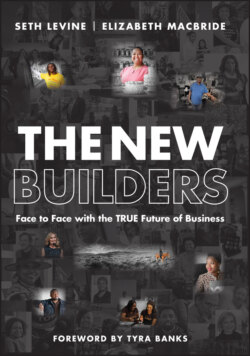Читать книгу The New Builders - Seth Levine - Страница 33
The Great Disappearance
ОглавлениеMany, if not most, of the top TV shows of the 1970s and 1980s were centered on people who owned their own businesses – George Jefferson, with his chain of dry cleaners, or Sam, the owner‐bartender of Cheers – or the lives of people who worked at the local business, like Alice. Even the lone heroes of our earlier pop culture were often self‐employed – like Marcus Welby, or Magnum PI. Who else would have the wherewithal to go off and solve a mystery or track down a killer, other than somebody who didn't have a boss to answer to?
Forty years later, after a long period in which much of the best pop culture explored the way that increasing corporatism and growing materialism was affecting American families – The Wonder Years or King of Queens – or went full‐out into dystopia or science fiction, you have to look hard to find entrepreneurs in today's pop media. There's the animated Bob's Burgers; or Atlanta, in which a Princeton dropout manages the hip‐hop career of his cousin; or the occasional self‐employed lawyer who turns up as the main character of a TV series. But many protagonists of today's hit shows either don't seem to have a recognizable source of income or are part of the larger corporate machine.
Pop culture reflects a lot more than just the norms of economic life. And a lot of great culture in the past few decades has explored the realities of gender, race, and sexuality hidden under the mainstream narratives of the middle of the century. Entertainment and culture also have become fractured so that fewer TV or movie producers are trying to capture the experiences of a broad swath of Americans.
But perception follows reality. Heroes, whether they're comedic, dramatic, or tragic, matter. And, while the majority of working Americans are still entrepreneurs – people working in or for small businesses – or people who have an entrepreneurial venture on the side, very little of our culture today reflects that. Neither does our support system for entrepreneurs reflect the reality of who they are or what businesses they're starting.
Meanwhile, people do keep going into business – just fewer and fewer of them. And in many cases, they're motivated by a passion that is at least on par with their motivation for material success, if not ahead of it. Many of the New Builders we profile blend a strong drive for business success with something beyond just money, whether that's a love for the land of their ancestors such as the Cheff family who operate a guiding business in The Bob Marshall Wilderness (whom we'll meet in Chapter 11), or becoming the first certified chocolatier in Arkansas, like Carmen Portillo (whose story we'll recount in Chapter 9). Many grassroots entrepreneurs start their businesses with an ulterior motive – something about their community or the world they want to see happen – and build a business around it.
Innovation, invention, and big dreams are what drive entrepreneurs. But those dreams can only be realized with some key ingredients, the most important of which is pretty basic: money.
